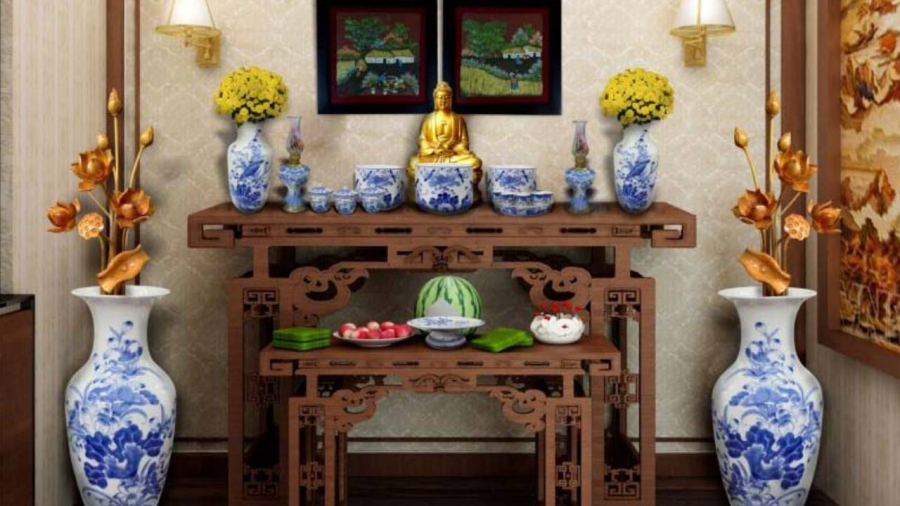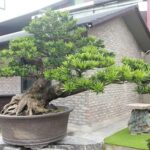Altar Facing the Opposite Direction of the House
Having the ancestral altar face the opposite direction of the house can result in yin and yang contrast, leading to unfavorable situations.
According to feng shui, the ancestral altar should be placed in a “auspicious site and direction,” meaning it should be situated in a favorable location and face a favorable direction based on the homeowner’s age. This not only brings harmony to the family but also ensures luck and fortune.

The ancestral altar should be placed in an auspicious location and direction
Altar Direction According to the Homeowner’s Mien
The homeowner needs to determine their mien to choose the appropriate altar direction. If the homeowner belongs to the Dong Tu Trach mien, the altar should face the Khảm, Tốn, Chấn, or Ly directions. On the other hand, if they belong to the Tay Tu Trach mien, the altar should face the Đoài, Càn, Cấn, or Khôn directions.
Avoid Placing the Altar in a Traffic Area
The ancestral altar should be placed in a quiet and serene area. Therefore, it is not advisable to place the altar near a traffic area as it would disrupt the solemnity and affect the family’s energy flow.
Avoid Placing the Altar Directly Facing the Entrance
Directly facing the entrance can cause the escape of positive energy, bringing bad luck to the homeowner. If the house is small and this placement cannot be avoided, consider using curtains to create privacy and discreetness for the altar area.
Avoid Placing the Altar Near the Bathroom or Toilet
The altar is a sacred space and should not be placed near the bathroom or toilet, considered unclean areas. Doing so would disrupt the solemn atmosphere and affect the family’s energy flow.
Additionally, avoid placing the altar under a beam if possible. If there is no better location, consider installing a ceiling. It is also best to keep devices like air conditioners, exhaust fans, or speakers away from the area above the altar.
Arranging the Altar
The arrangement of the altar depends on the house’s size and the family’s lifestyle. Typically, the ancestral altar will have one to three incense bowls. The middle bowl is for worshipping local deities and land gods, while the side bowls are for worshipping ancestors and the husband’s late parents. Careful arrangement, respecting feng shui principles, ensures peace and luck for the family.
The Magic Trio: Plant These 3 Trees in Your Yard for Lasting Luck and Prosperity
It’s no surprise that affluent families often adorn their homes with these three lucky plants. These plants are renowned for bringing good fortune and prosperity to their owners, and are considered some of the best feng shui plants for the home. The longer they are nurtured, the more their value shines through, offering an abundance of blessings and luck to the household.
The Ancestors’ Advice: “A Bed Against Two Walls: A Recipe for Ill Health and Debt?”
The ancient belief that the placement of one’s bed could influence wealth and destiny is an intriguing concept. It is said that the direction in which your bed faces can have a profound impact on your fortune and the fate of your family. This idea has captivated many, leading them to question the ideal orientation of their beds to invite prosperity and good luck into their homes.





































